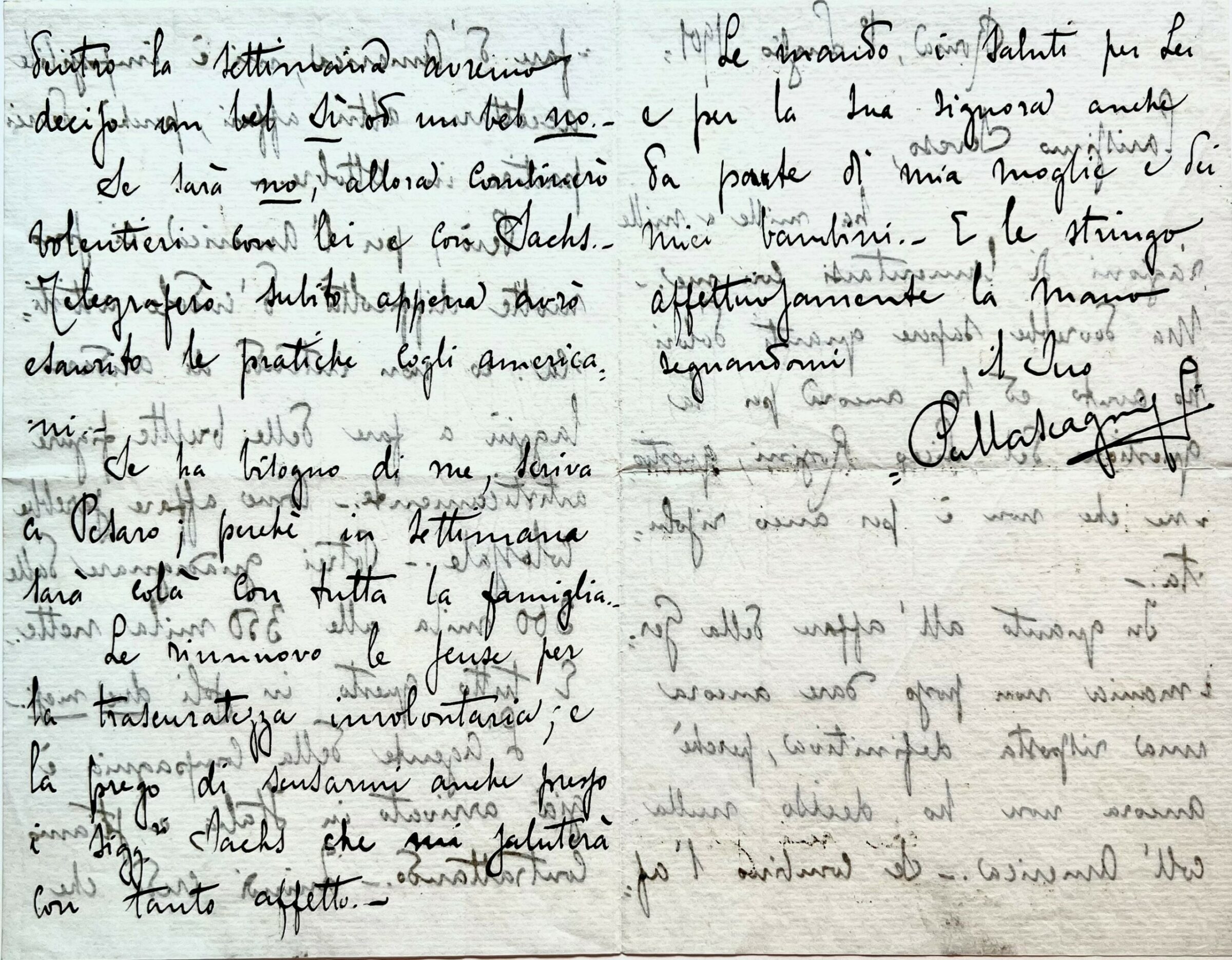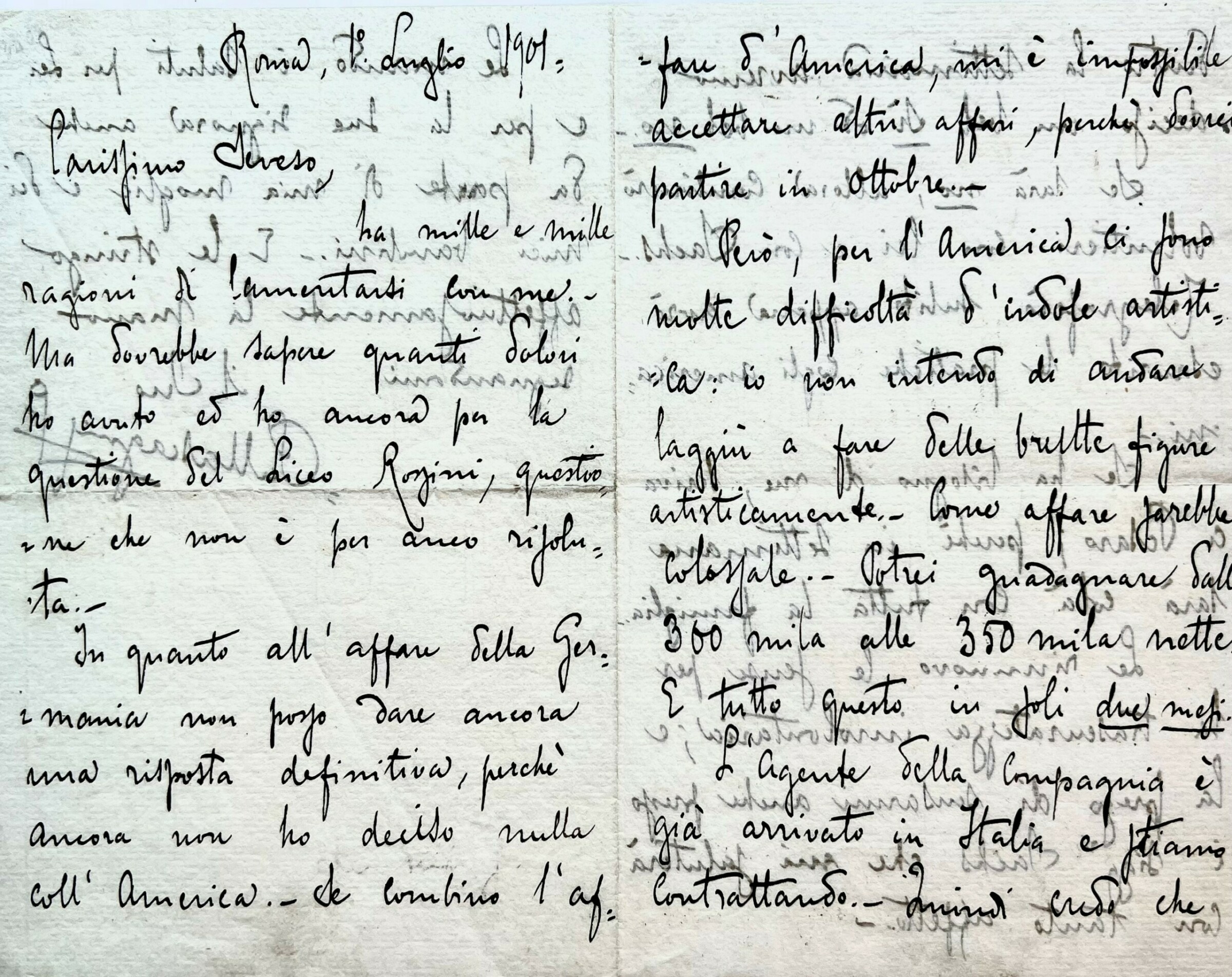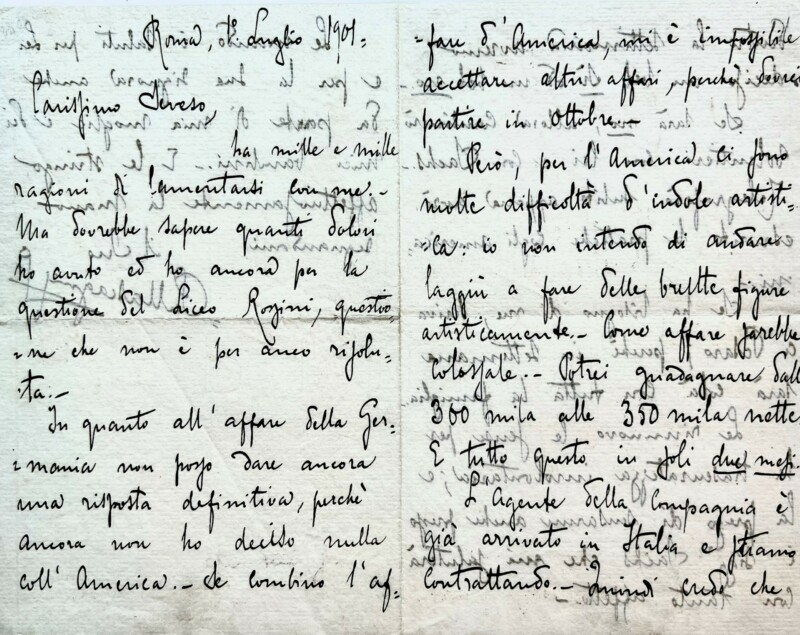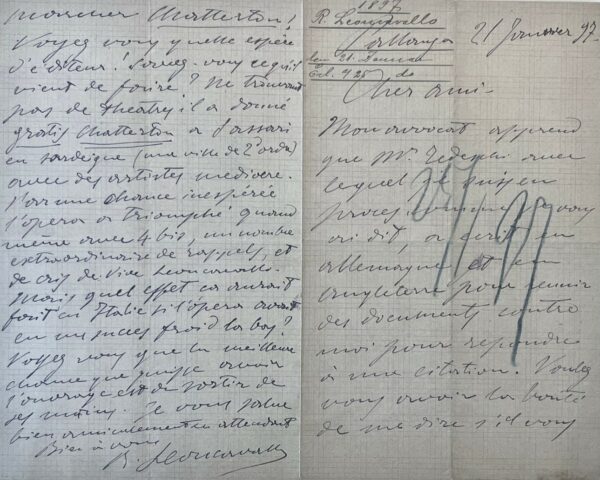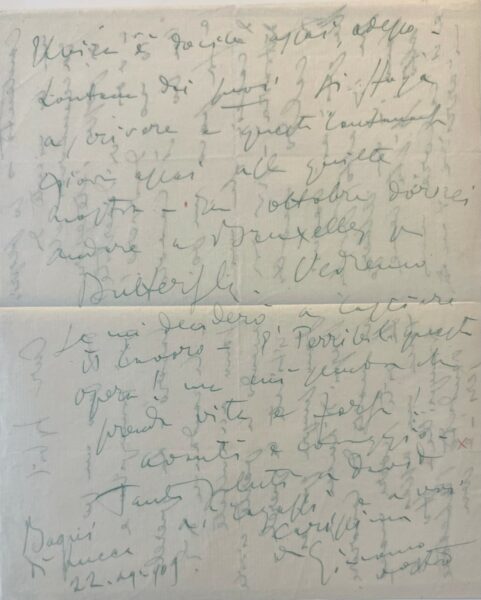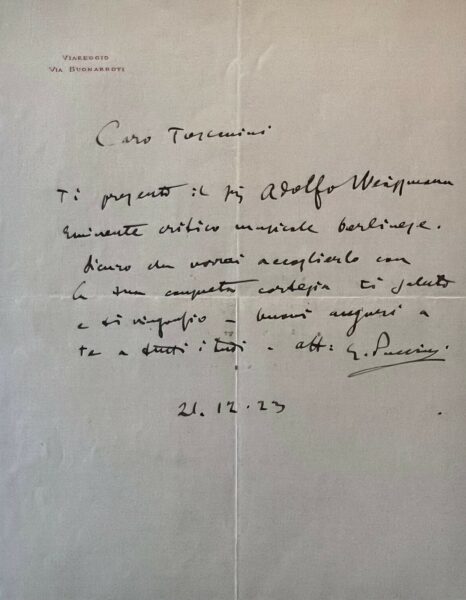As for the German deal, I cannot give a definite answer, because I have not yet decided anything about America. If I arrange the deal with America, it is impossible to accept other deals, because I would have to leave in October.
However, for America there are many difficulties of an artistic nature – I do not want to go over there and make a bad impression artistically. It would be a huge business. I could earn from 300,000 to 350,000 net. And all this in just two months.
The company’s agent has already arrived in Italy and we are in contract. So I think that within the week we will have decided a nice yes or a nice no. If no, I will gladly continue with you and Sachs. I will telegraph immediately as soon as I have completed the paperwork with the Americans. If you need me, write to Pesaro because I will be there this week with the whole family. I renew my apologies for the unintentional carelessness; and please excuse me also to Mr. Sachs, whom you will greet with much affection.
I send greetings to you and your lady also from my wife and children…”
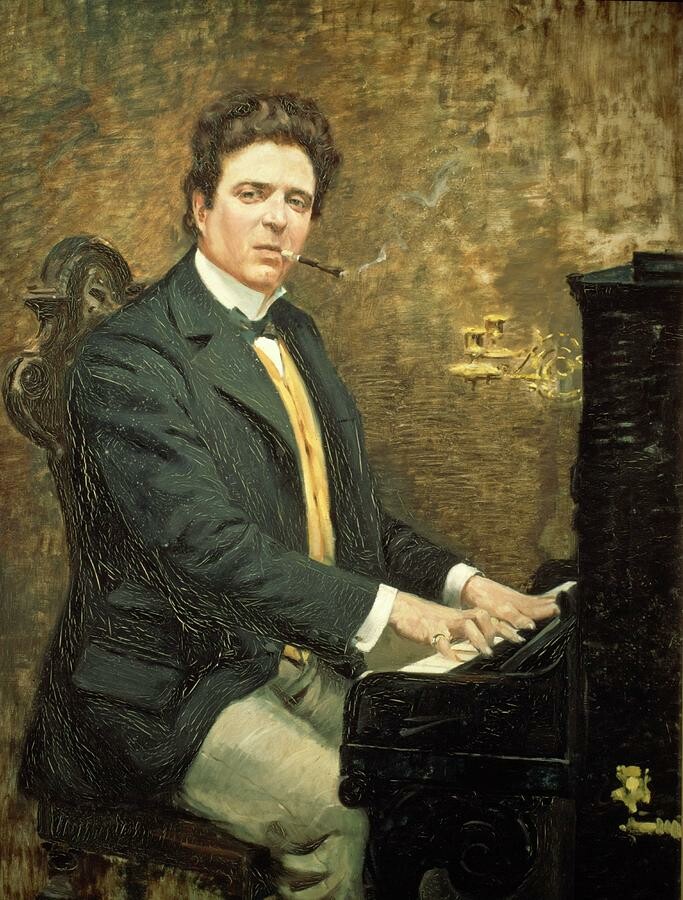
Pietro Mascagni
The year after Italian composer Gioacchino Rossini (1792-1868) left his estate to Pesaro to endow a free music school, the city established the Liceo Musicale Rossini or Conservatorio Statale di Musica Gioachino Rossini, of which Mascagni was appointed director in 1895. Rossini’s generosity allowed the school to compensate Mascagni handsomely, and during his tenure he increased the school’s enrollment and prestige. However, by the date of our letter, he was at odds with the school’s board of trustees due to his absences during tours and creating a significant budget deficit. Despite support from the students, Mascagni was fired in 1903 with the board recommending that his successor not be an opera composer because of the distraction it caused.
During 1901, the year of our letter, Mascagni conducted Giuseppe Verdi’s Requiem in Vienna after the composer’s death in January, and premiered his opera Le maschere, composed as an homage to Rossini. Despite the popularity of Mascagni’s Cavalleria rusticana, an opera whose “rapid vogue… in opera houses around the world was unprecedented and is still unmatched,” audiences did not warm to Le maschere, which met with a tepid reception, (The New Grove Dictionary).
Our letter indicates that Mascagni was planning an American tour with European concert agent Jules Sachs (?-?), which eventually took place in 1902, after the composer spent the spring touring Prague, Bucharest, Budapest, Vienna, Warsaw, and Berlin. Mascagni received an enthusiastic welcome in New York and was greeted by crowds of enthusiastic Italian Americans, many of whom attended Cavalleria Rusticana and Zanetto conducted by Mascagni at the Met and performed in Philadelphia, Boston, and San Francisco, where he raised funds for a monument to Verdi.
Written on a folded sheet and in very fine condition.

